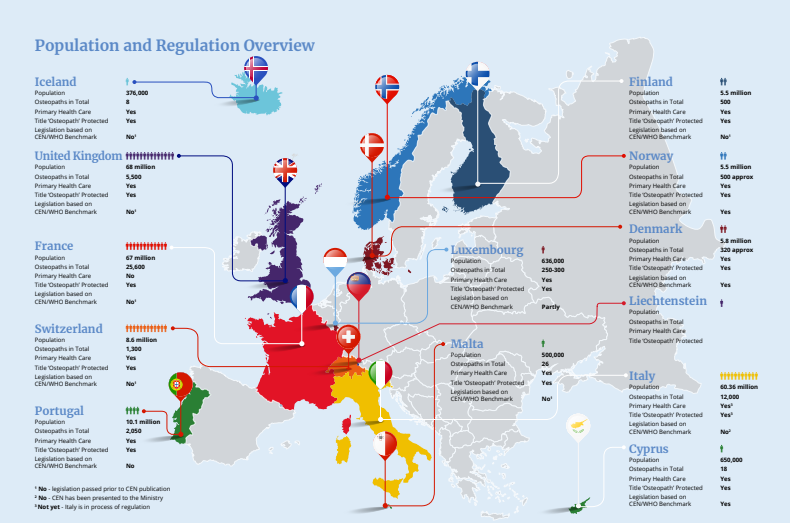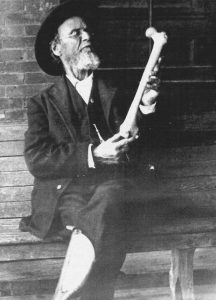The regulation of Osteopathy in Portugal is a reality that should make all professionals and the public proud. Although it is widely recognized and used in many countries around the world, not all of them regulate its practice.
In the United Kingdom, the first European country to regulate the profession, its practice is supervised by the General Osteopathic Council, often referred to as the Osteopathic Council. This body is responsible for setting standards, regulating practice and guaranteeing the competence of osteopaths practicing in the country. The General Osteopathic Council acts as an independent regulatory body and was created through legislation to guarantee the safety and quality of osteopathic services. Its main function is to protect the public by ensuring that registered osteopaths meet extremely strict professional standards.
In the United States, the practice of osteopathy is regulated by the National Board of Osteopathic Examiners (NBOME) and the Council on Osteopathic Education Accreditation (COCA). Osteopaths, known as osteopathic physicians (DOs), undergo similar medical training to traditional physicians (MDs), but with an added emphasis on the osteopathic approach.
In Canada, the regulation of osteopathy varies from province to province. Some provinces have councils or associations that supervise osteopaths, while others may not have specific regulations.
The practice of osteopathy in Australia is regulated by the Osteopathy Board of Australia. This body sets standards for practice and regulates the profession to ensure patient safety.
Osteopathy is recognized and practiced in Switzerland, but regulations vary between the country’s different cantons (states). Switzerland does not have specific national regulations for osteopathy, leaving regulatory responsibility to the cantonal authorities.
The list of countries with regulated professions can be found here: https://osteopathyeurope.org/regulation-2/, and there are several countries in the process of regulating them.
In Portugal, Osteopathy has been officially recognized as a Health Profession since 2003, by Law 45/2003 of 22 August. The title ‘Osteopath’ is protected by law (Law 71/2013 of September 2 and Government Ordinance 207-B/2014), and the practice of osteopathy by non-osteopaths is punishable by Law 2/2021 of January 21 (restricts access to the regulated profession or its exercise). This legislation reflects the country’s commitment to the safety and quality of health services. Regulation provides a clear framework for professionals in this field, establishing standards and guidelines that guarantee excellence in osteopathic practice.
Osteopaths in Portugal, due to regulations, must follow a specific educational path in higher education and meet strict requirements in order to obtain a professional license. After obtaining a professional license, professionals must be registered with the Health Regulatory Authority and the workplaces where the profession is practiced must be licensed by the same authority (Ministerial Order 182/2014 of September 12). This requirement aims not only to protect patients, but also to strengthen the credibility and recognition of Osteopathy as a respected health discipline.
For people looking for osteopathic services in Portugal, regulation offers an additional guarantee of quality. When choosing an osteopath, make sure you meet 3 essential requirements: that they have a professional license, that they are registered with the Health Regulatory Authority and that their place of work is licensed for this purpose. patients can trust that they are receiving health care from a qualified professional committed to promoting well-being and treating musculoskeletal conditions with expertise.
The regulation of osteopathy in Portugal is a significant milestone that strengthens the integrity of osteopathic practice, benefiting both professionals and those who seek their services.








